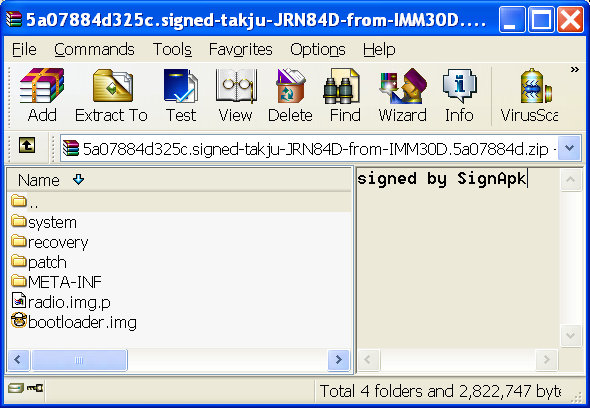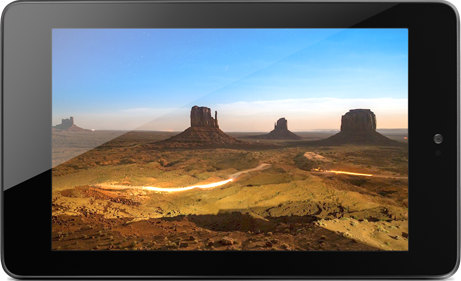Linaro Android team has started to port Android Jelly Bean to Samsung Origen board (powered by Exynos 4 dual core processor) and can now show Android 4.1 running on the board with hardware accelerated graphics. This is a preliminary image: the touchscreen, graphics, adb works, and you can use keyboard and mouse as input devices, but Wi-Fi, Bluetooth and multimedia (hardware video decoding) still have to be worked on. If you have an Origen board, you can give it a try by downloading the binaries @ https://android-build.linaro.org/builds/~linaro-android/origen-jb-gcc47-samsunglt-stable-blob/, and follow the instructions to create a bootable SD card with linaro-media-create. Jean-Luc Aufranc (CNXSoft)Jean-Luc started CNX Software in 2010 as a part-time endeavor, before quitting his job as a software engineering manager, and starting to write daily news, and reviews full time later in 2011. www.cnx-software.com
Linaro 12.07 Release with Kernel 3.5 and Android 4.0.4
Linaro has released version 12.07 based on Linux Kernel 3.5-rc3 and Android 4.0.4. Some work has been done on Jelly Bean (but the port is for next month), several benchmark tools have been added to LAVA as Linaro wants to provide standard benchmarks for Android, Linaro ALIP image now uses LXDE by default with a smaller image and improved performance, and Open Embedded images are now available (minimal and LAMP stack). Here are the highlights of the release: Android Jellybean baselines for Galaxy and Panda with Linaro extra’s available Android Benchmarking apps were deployed for pandaboard, snowball and origen in LAVA including: vellamo, quadrant, nbench, linpack, glbenchmark, geekbench, caffeinemark, antutu, andebench Improved native Benchmarks variance on Android to 1%, working on Java variance ICS “tests” builds now produced by default and test lists generated Open overlay tarballs working pm-qa’s cpuidle cpufreq cpuhotplug sched_mc suspend integrated into the Android builds Linaro […]
Android 4.1.1 Jelly Bean Source Code Released
Jean-Baptiste Queru, Android Open Source Project lead, announced that Android 4.1.1, Jelly Bean has been released to AOSP and uses the android-4.1.1_r1 tag. Proprietary binaries are available for Nexus 7 and Galaxy Nexus right now, and Nexus S (GSM and CDMA) and Xoom will be available later. If AOSP repo has not changed since the first Android 4.0 release, you should be able to get the source as follows:
|
1 2 |
repo init -u https://android.googlesource.com/platform/manifest -b android-4.1.1_r1 repo sync |
There is also a development branch (jb-dev) with the latest improvements and features. Once you get the code, you may want to build and run it. Instructions to build and run Android 4.0 (not yet updated to Android 4.1.1 with Galaxy Nexus 7) are available at http://source.android.com/source/building.html. Factory images for Android 4.1.1 for Nexus devices will eventually show up at https://developers.google.com/android/nexus/images Jean-Luc Aufranc (CNXSoft)Jean-Luc started CNX Software in 2010 as a part-time endeavor, before quitting his job as a software engineering […]
Download Android 4.1 Jelly Bean Update for Galaxy Nexus Smartphone
Slashgear has reported that some people have found Android 4.1 update for Google Nexus on Google’s servers before the official release next month. You can download it here. This is a leak, so it’s not 100% sure that it would work as expected, but it is said that it’s the same as the one installed on the Google Galaxy Nexus smartphones given away to all Google I/O 2012 participants. Via: Slashgear Jean-Luc Aufranc (CNXSoft)Jean-Luc started CNX Software in 2010 as a part-time endeavor, before quitting his job as a software engineering manager, and starting to write daily news, and reviews full time later in 2011. www.cnx-software.com
Google Nexus 7 Android 4.1 Tablet Features Nvidia Tegra 3 Processor
Google announced their very first tablet at Google I/O called Google Nexus 7 (but manufactured by Asus). The device runs the latest Android 4.1 (Jelly Bean) OS, is powered by Nvidia Tegra 3 quad-core Cortex A9 processor and comes with 1 GB RAM, and 8 to 16 GB NAND flash depending on the model. Here are the specifications of the Google Nexus 7: CPU – Nvidia Tegra 3 Quad core Cortex A9 @ 1.2 GHz Memory – 1GB RAM Storage – 8 or 16 GB Flash Display – 7” 1280×800 HD IPS display (216 ppi) Connectivity WiFi 802.11 b/g/n Bluetooth Camera – 1.2MP front-facing camera Sensors – Accelerometer, Magnetometer and Gyroscope Misc – Microphone, speaker, NFC and GPS Battery – 4325 mAh (Up to 8 hours of active use) Weight – 340 grams Size – 198.5 x 120 x 10.45mm The device only has a power, vol-/+ buttons, an headphone […]
Google Announces Android 4.1 Jelly Bean and Releases SDK
Google I/O has begun, and several major announcements have been made including the release of Android 4.1 (Jelly Bean), Google Nexus 7 tablet featuring an Nvidia Tegra 3 processor and running Android 4.1, and the Google Nexus Q media player based on TI OMAP4460 processing and running Android 4.0 ICS. I’ll write about all those announcements today in three different posts. Let’s start with Android 4.1 Jelly Bean. The new version of Google’s mobile operating system includes a smoother and more responsive UI, a home screen that automatically adapts to fit your content, a better predictive keyboard, more interactive notifications, improved Android Beam (NFC) sharing, improved voice dictation (now works offline) and more. Here’s a summary of the key technical changes to Android 4.1: Faster, smoother and more responsive Vsync timing will be used for all drawing and animations to ensure a constant framerate (~62.5 fps). Triple buffering is used […]






